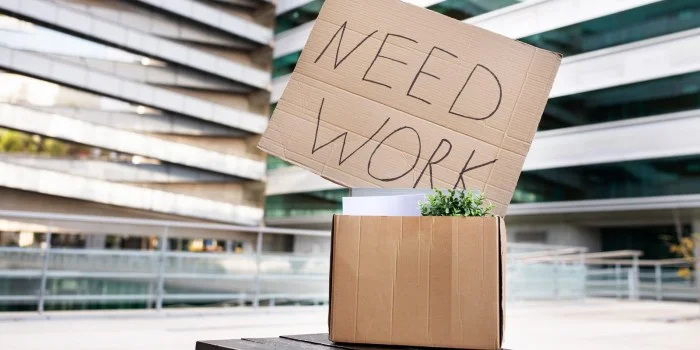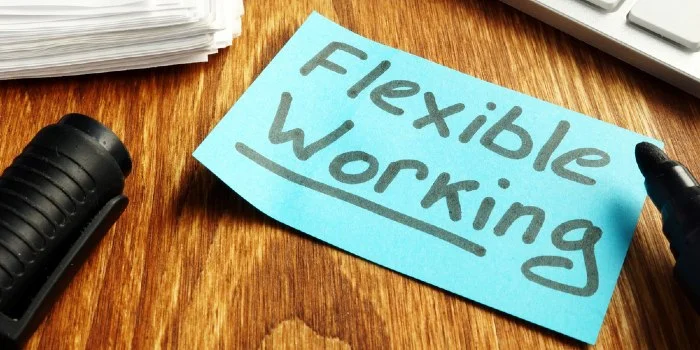There are many reasons to set up businesses, but one of the core and fundamental reasons is being able to make money.
So, when your limited company is finally churning a profit, there’s only one question that remains: how do I claim this reward for myself and extract profit from a limited company?
It’s an important question to ask. After all, if you don’t go about it the right way, you’re embezzling. So let’s avoid that and any unexpected and disproportionally high tax bills with this guide on how to extract profit from a limited company.
Are you sure you want to extract profit from a limited company?
Before we cover the ways that you can extract profits from a limited company, we need to make sure that this is something that you absolutely want to do.
Having a limited company in profit can be a great thing. And holding the funds in your business can help cover any future bills and wages or even invest in new ideas or projects.
Rather than extracting all the money from your limited company, it could be a good idea to think about how your company could use this money to make even more profit.
Know that saying, you need to spend money to make money? That’s exactly what we’re describing here.
But even if you don’t want to invest company funds into new projects, sometimes it’s a good idea to keep an emergency buffer in your accounts if an unexpected bad turn happens. Like a pandemic, or economic crisis… or a second, or third. It’s a great time to be alive and in business right now.
Lost the buzz for your business?
Starting a business is exciting. Succeeding is rewarding. The bit between is hard, repetitive, and full of self-doubt.
The Lonely Middle Club (From Business4Beginners) helps you through it:
Get support and advice from other small business owners
Remove the self-doubt that’s holding your business back
Learn techniques and strategies to grow your business faster
Be inspired with our exclusive ‘swipe’ file and AI-powered tools
No pressure – work at YOUR pace, towards YOUR goals
—
How to extract profit from a limited company
If you’re 100% sure that the money isn’t best suited to be left alone in your business, let’s talk about the different options you can choose to extract profit from a limited company.
- You can pay yourself a wage, or more accurately, give yourself a pay raise to increase your monthly salary.
- You can give yourself (and other shareholders) profits through dividends.
- You can put the money directly into your pension pot.
Each of these options has different tax rules and benefits – so it’s best if we cover each one in detail so you can see which option will be the best for you. Most directors tend to go for a combination of all three, giving them the best tax relief.
And like we said earlier, you can also choose to leave profits into the company with plans to sell later on.
Extract profits through a salary
One of the benefits of having a limited company over being a sole trader is that you’re able to pay yourself a monthly wage. (Even if you employ someone as a sole trader, you can’t pay yourself a wage!)
However, just paying yourself a bigger wage isn’t always the best way to extract profits from a limited company. In fact, because of the tax you have to pay on salaries, most directors only take a minimal wage so they are on lower tax brackets.
For reference, this is how much income tax each bracket pays for the 2022/23 tax year.
| Annual Earnings | Income Tax |
| £0-£12,570 | 0% |
| Between £12,571 and £50,270 | 20% |
| Between £50,271 and £150,000 | 40% |
| Above £150,000 | 45% |
On top of that, you will also have national insurance contributions – both as an employer and an employee.
If the annual earnings are below £9,100, both employee and employer NIC are 0%. That’s obviously great, but even the most frivolous of people will struggle to live on that amount per year. Earnings over £9,100 will be taxed at a 15.5% rate for employers and a 13.25% rate for employees up to £50,270. Anything over that amount will be taxed an additional 3.25%.
So what do these numbers mean?
As a director, let’s say you pay yourself an annual salary of £25,000.
This will be subject to an income tax of 20% (after your tax-free allowance!), meaning you’ll pay £2,486 a year in tax. On top of this, you will be charged a rate of 13.25% NIC – a further £3.315.50 deduction. This leaves you an annual income of £19,201.50, meaning you’re losing out just under £6,000 to HMCR.
In contrast, if you upped your wages to £100,000, you would pay an astonishing £27,428.40 in income tax and £6,611.48 NIC. So, the HMCR will gain a total of £34,039.88 while you take home just £65,960.12 a year. That high wage doesn’t seem worth it now, does it?
Extracting profit through dividends
Dividends are a way for limited companies to pay shareholders any achieved profits, making it a great way to extract profits from your limited company. If you own all the shares for your company, that means that you get 100% of the dividends, which could be a very profitable day for you indeed.
Dividends are subjected to tax, but not in the same way that your salary is. Instead, the tax brackets for dividends are:
| Tax band (England) | Dividend tax rate |
| £0-£37,500 after allowances | 7.5% |
| Between £37,501-£150,000 | 32.5% |
| Above £150,000+ | 38.1% |
However, these rates only apply once your personal allowance of £12,570 has been used. So if you use this to pay yourself a basic salary, the tax rate will then only apply to the remaining amount.
In addition, you’re also allowed to receive £2000 in dividends tax-free. That means that you could potentially:
- Pay yourself a small salary of £9000, which isn’t taxed as it’s under £12,570.
- Pay yourself a further £5,570 as a dividend payment, which uses the remaining personal allowance threshold, plus £2000 of tax-free dividend payments.
That’s £14,570, completely tax-free. But as energy prices are soaring, the more realistic approach would be to use your personal threshold on a guaranteed income, taking the remaining profits through the lower tax rate of dividends.
You can find more information on dividends work here.
Extract company profits to your pension pot
Another way to extract profits from your limited company is to pay into your pension pot. This is often a better way to avoid high tax bills while looking after your future, as you can only pay up to 100% of your salary into a company director pension. So if you’re paying yourself a basic salary, this isn’t going to be a high amount.
However, companies can pay up to £40,000 tax-free a year into a director’s pension pot. There are some exceptions here, which you can find out more about in our guide to company pension contributions for directors.
The only downside here is that you, unfortunately, need to wait until you are retired to get your hands on it.
Weighing up your options?
When it comes to extracting profit from a limited company, there are three main options that you can choose.
- Pay yourself a salary;
- Pay yourself a dividend;
- Pay profits into your pension.
All of these options have different tax rates and benefits and can be used at the same time. So the most efficient way of extracting profits from a limited company could be to use all three methods at once.
Alternatively, you can keep the money in your business to reinvest or give yourself a bigger payday if you choose to sell down the line. If you want to make your money work harder, you could also consider taking out business savings accounts for your limited company.
These accounts are similar to standard savings accounts but are specifically designed for business use, so could get you better interest rates.
We are business experts, not accountants. If you’re considering any of the above options, always ensure that you seek advice from your accountant or a financial adviser before making any decisions.
Speaking of accountants, if you haven’t already got one, you might want to consider speaking to one of our best-rated online accountants on the market.
EXCLUSIVE OFFERS – Save On Your Accountancy Costs
Enjoy your profits, and make sure to check back at Business4Beginners for more ideas, tips, and advice on how to grow your business (and your future bank accounts!). Until next time.








